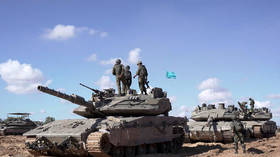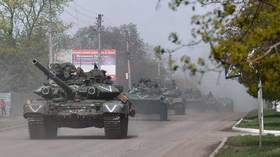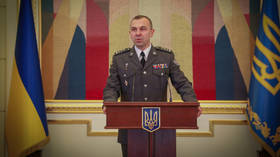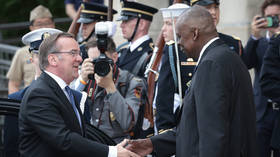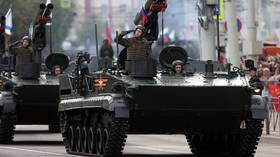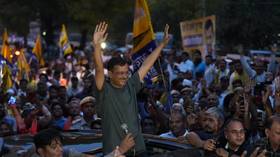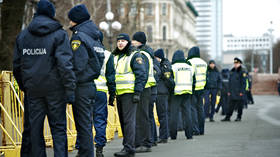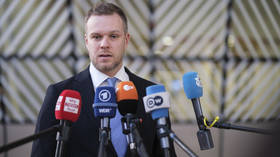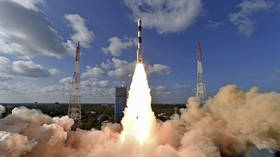Kerry's 'Plan B' sends message to 'moderate rebels': Keep fighting
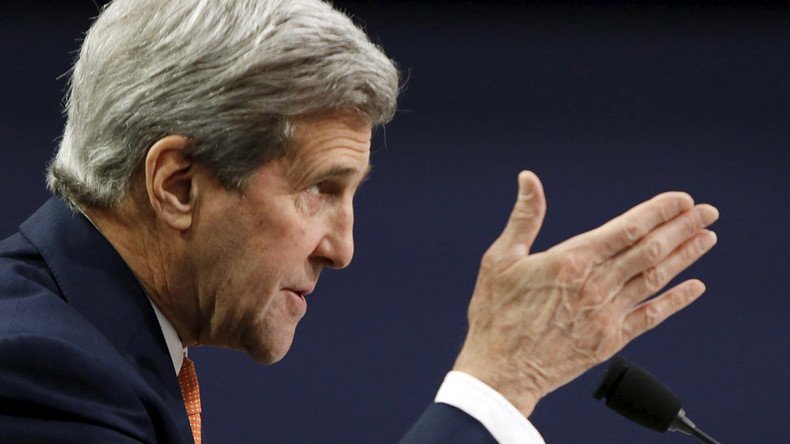
Washington's waffling on a ceasefire agreement shows it is not only lowering expectations about the success of the plan, but preparing for a contingency in its place, says Brian Becker, of the anti-war ANSWER coalition.
READ MORE: Syria ceasefire takes effect, terrorist groups excluded
RT: Several days ago, John Kerry announced the possibility of Plan B for Syria which involves its partition. Was he serious? What else could this Plan B involve?
Brian Becker: I think we can see that John Kerry’s statement about a so-called ‘Plan B’ and then President Obama’s speech where he almost completely dashes expectations that Plan A - which is the ceasefire agreement between the US and Russia - could possibly succeed shows that the US government is systematically not only lowering expectations about the success of the ceasefire plan, but obviously preparing for a contingency.
When you look at that fact, that can only be a sign of encouragement by the Obama administration to the so-called moderate armed groups to keep fighting because the ceasefire isn’t the last deal, it’s not the real deal. If anything, the Obama administration has turned its back in terms of its rhetoric and its formulations on a commitment to the ceasefire, a commitment the they say they made earlier with the Russians, a commitment that the Syrian people desperately want and right now the Obama administration and President Obama himself said: ‘The Russian intervention in Syria has made the humanitarian catastrophe worse’. Certainly, that’s not the way you would talk if the US was actually partnering with Russia for a ceasefire.
Commenting on the ceasefire, journalist and author David Swanson told RT: "I think the doubts and the suspicions of the other parties may be self-fulfilling and may lead to a failure here as in the past. And I think it is clear that many in the US and in the other nations involved want it to fail, and want to be able to say: 'We tried this and now we are going to try something else' which in the view of Secretary Kerry is to partition Syria which he has no ability to do. He’s partitioned his conscious, it appears to me."
RT: The ceasefire came into effect. Why did Kerry even discuss a Plan B before it had a chance to succeed?
BB: The inference of Plan B is twofold. One is the possible fragmentation - that is, the partition of Syria - meaning the actual destruction Syria, a 10,000 year old civilization into fragments along ethno-sectarian lines, a consequence of a foreign-funded civil war that began in 2011. And the second feature of Plan B would be what the unnamed US official say is a more confrontational approach, meaning the escalation of military intervention on the part of the US, perhaps with Turkey, perhaps trying to contemplate a ‘no fly zone’ which, of course, is a military escalation by the US - not against ISIS, not against the terrorists - but in fact against the sovereign government of Bashar Assad.

Michael Maloof, former senior security policy analyst in the office of the US Secretary of Defense,said: "I think there are going to be some elements from outside that are going to try and ensure that it is going to be a failure. I am thinking particularly of Saudi Arabia; it’s really not in their interest for the Assad regime to survive. The whole idea of a ceasefire is to get all sides to sit down and come to the negotiating table and work out elections, but that assumes of course Assad is going to be involved and that doesn’t bode well for countries such as Saudi Arabia and Turkey, which have vowed to do away with Assad. And now they are marching troops to the borders – to me it is a provocation."
RT: Russia's Foreign Minister Sergey Lavrov says any Plan B is not an option. How big a sticking point could this become for Washington and Moscow?
BB: The Plan B is a complete non-starter for the Russians because it means the negation of the ceasefire plan that the US and Russia have been negotiating for several months, first in Vienna, then Vienna 2 and in Geneva…For the US officials to say ‘plan A is probably not going to work’, it means that they are doing everything possible to undermine its success. Why not say if they are honest, earnest and genuine about the ceasefire that they are fully committed to it? Why walk back and start talking about Plan B before Plan A even had a chance to go into effect? It shows a lack of the commitment, a lack of seriousness on part of the Obama administration.
The statements, views and opinions expressed in this column are solely those of the author and do not necessarily represent those of RT.


